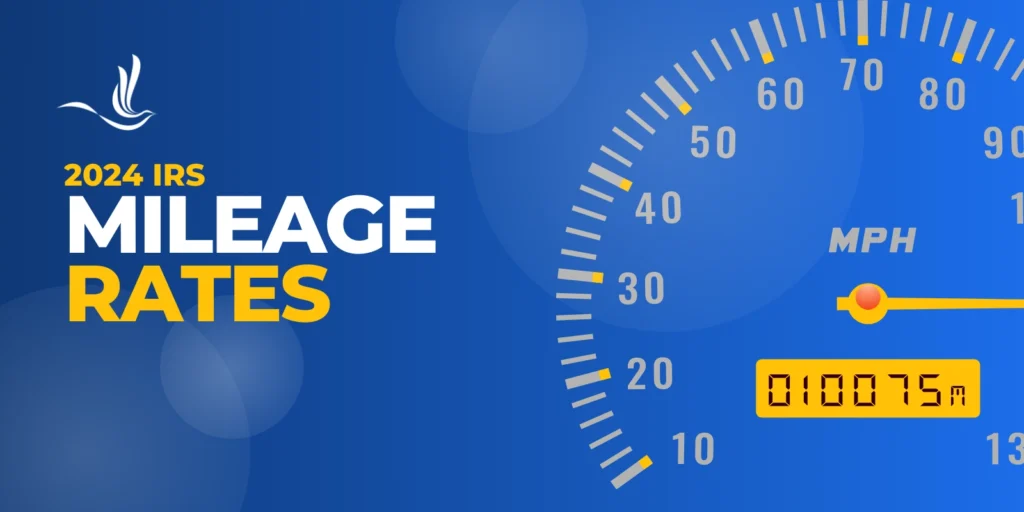
The IRS has announced the new mileage rates for 2024. This topic holds significance for countless individuals and businesses across the United States. Whether you’re self-employed, a small business owner, or an employee who uses your vehicle for work-related purposes, understanding the 2024 IRS mileage rates is crucial. In this article, we’ll delve into what these rates are, why they matter, and how they may impact you.
What Are IRS Mileage Rates?
The IRS mileage rates, also known as the standard mileage rates, are set by the IRS. They determine the deductible costs of operating an automobile for business, charitable, medical, or moving purposes. These rates are designed to simplify the process of calculating deductions for vehicle-related expenses.
Why Do IRS Mileage Rates Matter?
There are several reasons taxpayers, particularly business owners, should stay up to date on the IRS mileage rates.
Tax Deductions
The most obvious reason IRS mileage rates matter is their impact on tax deductions. If you use your vehicle for eligible purposes, you can deduct a portion of your vehicle-related expenses from your taxable income using these rates. You can do this by using the IRS mileage rates. This is much easier than tracking actual vehicle expenses, like depreciation, gas, insurance, and more, using the actual expenses method.
Cost Management
For businesses, the IRS mileage rates play a crucial role in cost management. For example, they help companies determine and reimburse employees for their personal vehicles for business purposes without requiring detailed records of actual expenses. The predictability of the IRS mileage rates allows businesses to budget more effectively for transportation-related expenses. This can be especially important for industries or businesses where travel is a significant part of operations.
Record-Keeping
The IRS mileage rates simplify record-keeping, as they provide a standard rate for mileage deductions. This eliminates the need to track every expense related to your vehicle and allows you to use a straightforward calculation.
The 2024 IRS Mileage Rates
As of 2024, the IRS mileage rates have been adjusted to reflect changes in the cost of operating a vehicle. These rates are as follows:
- Business Mileage Rate: The standard mileage rate for business-related driving in 2024 is 67 cents per mile. This is an increase from the 2023 rate of 65.5 cents per mile. If you use your vehicle for business purposes, you can use this rate to calculate your deductible expenses. For example, if you travel 10,000 miles for business purposes in 2024, you can deduct $6,700 using the standard mileage rate (10,000 miles x $0.67).
- Medical and Moving Mileage Rate: For medical-related travel and moving expenses, the IRS mileage rate for 2024 is 21 cents per mile. This is a 1 cent decrease from 2023’s rate of 22 cents per mile. Individuals who have eligible medical expenses or are moving for work can use this rate to claim deductions.
- Charitable Mileage Rate: The 2024 mileage rate for driving for charitable purposes remains unchanged at 14 cents per mile. This rate is set by law and is typically not subject to annual adjustments.
Impact on Individuals and Businesses
The updated IRS mileage rates for 2024 will have different implications for individuals and businesses:
For Businesses:
Companies that reimburse employees for business-related travel can now use the 67 cents per mile rate, which has increased. Consequently, employees may receive higher reimbursements. Businesses need to update their expense policies to align with the new mileage rates to ensure accurate reimbursement and tax compliance.
For All:
Businesses and individuals should note some important limitations surrounding the standard mileage rate.
- Generally, taxpayers must use the standard mileage rate in the first year that a vehicle is used for business purposes. This means that they generally may not deduct actual expenses in the first year.
- Taxpayers with leased vehicles must use one method only for the entire lease period. For example, if they choose to use the standard mileage rate in the first year, they must continue to use the standard mileage rate for the entire lease period.
Conclusion
Overall, understanding the 2024 IRS mileage rates is essential for anyone who uses their vehicle for business, medical, moving, or charitable purposes. These rates simplify the process of claiming deductions, managing costs, and ensuring compliance with tax regulations. It’s advisable to keep detailed records of your mileage. Also, consult with a tax professional to maximize your deductions and stay up to date with any changes in tax laws or rates. Optima Tax Relief is the nation’s leading tax resolution firm with over a decade of experience helping taxpayers with tough tax situations.
If You Need Tax Help, Contact Us Today for a Free Consultation